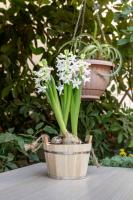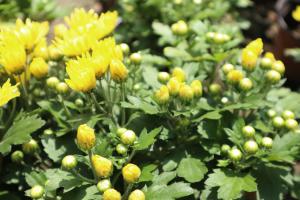Introduction
Coffee farming is a complex industry with many factors affecting the quality and yield of the coffee plants. One of the crucial factors in coffee planting is the distance between the individual plants. In this article, we will discuss how far apart coffee trees should be planted to achieve the best results.
Spacing for Arabica coffee plants
Arabica coffee plants generally require more space than other coffee varieties due to their larger size and spreading branches. For Arabica coffee plants, a distance of 2.5 to 3 meters between plants and 4 to 5 meters between rows is recommended. This spacing allows adequate sunlight to penetrate through the canopy, which helps increase the yield and quality of the coffee beans.
Spacing for Robusta coffee plants
Robusta coffee plants are smaller in size and have a more erect growth habit than Arabica plants. Hence, they do not require as much space between the plants. A spacing of 2 to 2.5 meters between plants and 2.5 to 3 meters between rows is ideal for Robusta coffee plants. This spacing allows adequate sunlight and also facilitates ease of cultivation, which can increase farm productivity.
Spacing for specialty coffee plants
Specialty coffee plants such as Geisha, Bourbon, and Typica require more attention and care than other coffee varieties. These plants require more space, especially during the early stages of growth. A spacing of 2.5 to 3 meters between plants and 4 to 5 meters between rows is recommended for specialty coffee plants to ensure that they receive adequate sunlight, water, and nutrients.
The impact of spacing on coffee yield
The spacing between coffee plants has a significant impact on the ultimate yield of the coffee trees. If the plants are too close together, they will compete for sunlight, nutrients, and water, which can lead to a decrease in yield. On the other hand, if the plants are spaced too far apart, there will be wasted space on the farm, which can result in inefficiency and decreased farm productivity. Therefore, it is crucial to choose the right distance between coffee plants to balance yield and farm efficiency.
Conclusion
The spacing between coffee plants is a critical factor that can affect the yield, quality, and efficiency of the farm. Arabica coffee plants require more space than Robusta and specialty coffee plants due to their larger size and spreading branches. Robusta coffee plants can be planted closer together, while specialty coffee plants require optimal spacing to ensure their growth and development. Choosing the right spacing for coffee plants is a delicate balance between yield and productivity, and farmers must consider the specific variety of coffee they are planting and the farm's conditions to determine the optimal spacing for coffee trees.

 how many times do yo...
how many times do yo... how many planted tre...
how many planted tre... how many pine trees ...
how many pine trees ... how many pecan trees...
how many pecan trees... how many plants comp...
how many plants comp... how many plants can ...
how many plants can ... how many plants and ...
how many plants and ... how many pepper plan...
how many pepper plan...






























